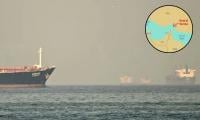Powering Pakistan for the 21st century
MATHS AND SCIENCE REPORT LAUNCHED
Volume III: A Roadmap to Transform Maths and Science Education
Islamabad
Pakistani schools (especially government schools) are producing unacceptably low levels of learning outcomes in maths and science. This represents a significant and deep-rooted challenge to Pakistan’s economic growth. This was revealed by a report launched by Pakistan Alliance for Maths and Science in collaboration with Alif Ailan.
In the Punjab, the 2016 Punjab Examinations Commission (PEC) results show that average maths scores for Class V are 53%. In the Punjab, the 2016 Punjab Examinations Commission (PEC) results show that average science scores for Class V are 48%. In the Punjab, the 2014 NEAS survey reports that the average science scores for class IV students are 48.7%. In the Punjab, the 2014 NEAS survey reports that the average Maths scores for class VIII students are 53%.
As of today, Pakistan does not provide the children of the least privileged parents a decent maths or science education. The Pakistan Alliance for Maths and Science was formed to work with the government to tackle the challenge of improving maths and science education in our schools, particularly government schools where the children from poorest families are enrolled. The Alliance has 48 members to date from the profit and non-profit sectors and is growing every day.
Powering Pakistan for the 21st century is a three-volume document compiled by researchers and education activists mobilised by the Pakistan Alliance for Maths and Science (the Alliance), under the patronage of a range of government and non-government organisations.
The purpose of the Powering Pakistan for the 21st century document is to highlight the importance of maths and science education in Pakistan’s classrooms, especially those in government schools, where the least privileged of this country’s children study. In doing so, the Alliance seeks a robust set of actions by governments, both federal and provincial, that help transform maths and science education in Pakistan.
Volume I was titled ‘How Maths and Science Power Nations’. The Prime Minister of Pakistan launched this volume on January 27, 2017. It presented the case that Maths and science are essential informants of a nation’s economic progress and prosperity.
Volume II was titled ‘The State of Maths and Science in Schools’. It was launched on February 13, 2017 through a digital event. It summarised the state of Maths and science education, the effort being invested in it, and the results being achieved. PAMS also presented a framework to help explain why the state of Maths and science education is as it is, and how the status quo has come about.
Volume III is titled ‘A Roadmap for Transforming Maths and Science Education’. In this volume Pakistan Alliance for Maths and Science team presented ideas and recommendations that can help Pakistan, as a state and a society, re-orient public policy and private investment decisions to serve a brighter, more prosperous and more secure future.
A Roadmap for Transforming Maths and Science Education is a summary of ideas and recommendations that can help alter the quality of maths and science education available to Pakistani children. The basis for the roadmap is a framework of analysis for the problems in maths and science education, as presented in Volume II of Powering Pakistan for the 21st century. This framework highlights the problems in maths and science education, from the very big-picture, macro-level issues to the issues inherent to the individual experience of children in the classroom, and with learning material. The recommendations in this document are presented within the context of existing efforts to improve the situation, either specifically with respect to maths and science, or more generally within the education sector.
For the Punjab, the Khwarizmi Science Society led by Dr Sabieh Anwar, launched the Roadmap on March 10, 2017 at the School of Science and Engineering at the Lahore University of Management Sciences. The best and brightest of Pakistan’s maths and science community have come together to provide the federal and provincial governments with comprehensive recommendations on how to improve the maths and science learning in government schools immediately, in the short term as well as the medium term.
The Punjab has already made headway in tackling this challenge. The Planning and Development board has initiated a conversation with various stakeholders in the province to develop a science policy. A task force for the development of science programs and frameworks has been created to manage science popularisation at all levels. Additionally, initiatives taken by various member organisations of the Pakistan Alliance for Maths and Science have been met with enthusiasm in the province. For example, in district Layyah, eight science fairs were held in girls and boys government schools organised by the DCO in conjunction with the Chief Executive of the District Education Authority.
-
 Prince Harry Secretly Reaches Out To King Charles, William Amid Andrew Scandal?
Prince Harry Secretly Reaches Out To King Charles, William Amid Andrew Scandal? -
 Bruce Campbell Makes Heartbreaking Statement As He Releases Details Of Cancer Diagnosis
Bruce Campbell Makes Heartbreaking Statement As He Releases Details Of Cancer Diagnosis -
 Kaley Cuoco Reveals How She Felt On The Set Of 'Charmed'
Kaley Cuoco Reveals How She Felt On The Set Of 'Charmed' -
 ‘Mouse Utopia’ Collapse Shows The Need For Space Colonies, Says Elon Musk
‘Mouse Utopia’ Collapse Shows The Need For Space Colonies, Says Elon Musk -
 Kate Middleton Sends Powerful Message To King Charles Amid Olive Branch To Meghan Markle, Harry
Kate Middleton Sends Powerful Message To King Charles Amid Olive Branch To Meghan Markle, Harry -
 Prince Harry, Meghan Markle Mark Major Milestone With Powerful Message
Prince Harry, Meghan Markle Mark Major Milestone With Powerful Message -
 'Emmerdale' Actor Eric Allan Breathes His Last After Incredible 48-year Career
'Emmerdale' Actor Eric Allan Breathes His Last After Incredible 48-year Career -
 Prince William 'already King Unofficially' Amid Charles Abdication Plans
Prince William 'already King Unofficially' Amid Charles Abdication Plans -
 FBI Hunts For Another High-profile Missing Case After Nancy Guthrie Disappearance
FBI Hunts For Another High-profile Missing Case After Nancy Guthrie Disappearance -
 Carrie Underwood Unleashes Fierce Response After Unfortunate Incident On 'American Idol'
Carrie Underwood Unleashes Fierce Response After Unfortunate Incident On 'American Idol' -
 Meta Tests AI Shopping Feature To Compete With ChatGPT And Gemini
Meta Tests AI Shopping Feature To Compete With ChatGPT And Gemini -
 Prince Harry’s Claims About Prince William Fight Get Exposed: ‘The Truth Is Different’
Prince Harry’s Claims About Prince William Fight Get Exposed: ‘The Truth Is Different’ -
 Savannah Guthrie Continues To Receive Support From Meghan Markle's Close Friend
Savannah Guthrie Continues To Receive Support From Meghan Markle's Close Friend -
 Alan Cumming's Unexpected Gesture Comes To Light As He Blasts BAFTA For Tourette’s Incident
Alan Cumming's Unexpected Gesture Comes To Light As He Blasts BAFTA For Tourette’s Incident -
 Global Oil, Gas Shipping Costs Soar As Iran Warns Of Strait Of Hormuz Closure
Global Oil, Gas Shipping Costs Soar As Iran Warns Of Strait Of Hormuz Closure -
 Beyond The Smartphones: Qualcomm CEO Sees Robotics As Top Growth Engine By 2028
Beyond The Smartphones: Qualcomm CEO Sees Robotics As Top Growth Engine By 2028



